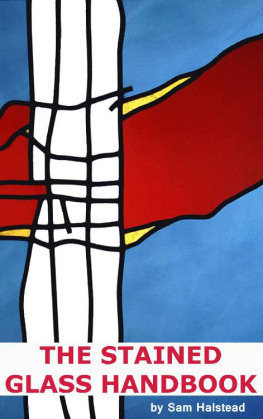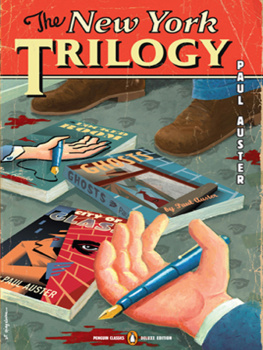Simon Mawer - The Glass Room
Here you can read online Simon Mawer - The Glass Room full text of the book (entire story) in english for free. Download pdf and epub, get meaning, cover and reviews about this ebook. year: 2009, publisher: Other Press, LLC, genre: Art. Description of the work, (preface) as well as reviews are available. Best literature library LitArk.com created for fans of good reading and offers a wide selection of genres:
Romance novel
Science fiction
Adventure
Detective
Science
History
Home and family
Prose
Art
Politics
Computer
Non-fiction
Religion
Business
Children
Humor
Choose a favorite category and find really read worthwhile books. Enjoy immersion in the world of imagination, feel the emotions of the characters or learn something new for yourself, make an fascinating discovery.

- Book:The Glass Room
- Author:
- Publisher:Other Press, LLC
- Genre:
- Year:2009
- Rating:4 / 5
- Favourites:Add to favourites
- Your mark:
- 80
- 1
- 2
- 3
- 4
- 5
The Glass Room: summary, description and annotation
We offer to read an annotation, description, summary or preface (depends on what the author of the book "The Glass Room" wrote himself). If you haven't found the necessary information about the book — write in the comments, we will try to find it.
The Glass Room — read online for free the complete book (whole text) full work
Below is the text of the book, divided by pages. System saving the place of the last page read, allows you to conveniently read the book "The Glass Room" online for free, without having to search again every time where you left off. Put a bookmark, and you can go to the page where you finished reading at any time.
Font size:
Interval:
Bookmark:

Also by Simon Mawer
Chimera
A Place in Italy
The Bitter Cross
A Jealous God
Mendels Dwarf
The Gospel of Judas
The Fall
Swimming to Ithaca
Gregor Mendel: Planting the Seeds of Genetics

Most of the Czech letters are pronounced more or less as in English. A major exception is the letter c, which is pronounced ts. Thus inovace, innovation, is pronounced innovatsuh and tureck, Turkish, as in Turkish coffee, is turetskah. Ch is always the ch in the Scottish loch. J is pronounced as the y in yes, so pokoj is pokoy.
Vowels are lengthened by the diacritical mark , a dash above. Thus Landauerov is Landauero-vah, not Landauerover. Pan, Mrs, is panee.
The hek or hook diacritical mark peppers the language, modifying a number of vowels and consonants. Hek itself contains its own example it is pronounced hah-chek. Thus is sounded as ch in church. With a hek, becomes ye (thus dvka, whore, is dyev-ka); becomes zh, the sound of the s in pleasure (thus id, Jew, is Zhid); and becomes sh, so the pilas fortress is Sh-pilas. The consonant that gives the most trouble to English speakers is . This is the rzh sound in the name of the composer Dvok, pronounced Dvorzh-ahk. Finally, I have used Msto for the name of the city in the book; this is simply the Czech word for town or city, and is pronounced Mnyesto, the m and n sounds being elided together.
Although The Glass Room is a work of fiction, the house and its setting are not fictional. I have disguised both with name changes, but that will not fool anyone who knows the building on which the Landauer House is modelled or the city that hides behind the name Msto. However, penetrating those thin disguises will not lead to any further revelations: Liesel, Viktor, Hana and all the rest are creatures of my own imagination and their story has no basis in fact. A few non-fictional characters do make brief appearances. One such is the talented composer Vtzslava Kaprlov, whose tragically short life seems emblematic of the brilliant but doomed First Republic of Czechoslovakia. I urge the reader to find out more about her, and her country.
Iva Hrazdlkov gave advice on the Czech used in the novel, as did Jochen Katzer with the German. Their help is very much appreciated. Any language errors that have slipped through the process are, of course, my own.
Besides her assistance with the Czech language, Ivas quick-witted and perceptive advice on many aspects of Czech culture and history particularly that of her native city has been unstinting and invaluable. I am greatly indebted to her for all the help she has given.
To Matthew and Julia
Oh yes, were here.
She knew, even after all these years. Something about the slope of the road, the way the trajectory of the car began to curve upwards, a perception of shape and motion that, despite being unused for thirty years, was still engraved on her mind, to be reawakened by the subtle coincidence of movement and inclination.
Were here, she said out loud. She grabbed her daughters hand and squeezed. Their escort in the back of the car shifted on the shiny plastic seat, perhaps in relief at the prospect of imminent escape. She could smell him. Damp cloth (it was raining) and cheap aftershave and old sweat.
The car a Tatra, she had been told drew in to the kerb and stopped. Someone opened the door. She could hear that, and sense the change in the air. Faint flecks of water on the wind and someone opening an umbrella like the sail of a boat snapping open in the breeze. She recalled Viktor on the Zrichsee, the little dinghy pitching out into the waves, black trees rising from the blacker water beyond their fragile craft. Like riding a bike, he had cried, bringing the dinghy up into the wind, deliberately letting the little craft heel over. You get the sense of balance.
Its not a bit like riding a bike, she had replied, feeling sick.
Viktor should be here. Physically here, she meant, for in some way he was here, of course. His taste, his vision enshrined. She slid across the seat towards the blur of light that was the open door of the car. A hand gripped her arm and helped her out onto the pavement. There was a brush of rain across her face and the rattle of drops on the umbrella above her head. She straightened up, feeling the light around her, feeling the space, feeling the low mass of the house just there across the forecourt. Viktor should be here. But Ottilie was, coming to her left side.
Its all right, darling. Ill manage on my own.
A strange hand grasped her elbow and she shook it off. Do you think I dont know my own house? She spoke sharply, and immediately regretted the comment for its brusqueness and its pure factual inaccuracy. It wasnt her house, not any longer, not in any legal terms, whatever Martin might say. Stolen, with all the solemnity of legal procedures, at least twice and by two different authorities. But it was her house in other, less clearly defined terms. Hers and Viktors. The vision. And it still bore their name, didnt it? Any amount of juridical theft had not managed to expunge that: Das Landauer Haus. The Landauer House. Vila Landauer. Say it how you will. And Rainers too, of course.
Tapping with her cane she walked forward across the space, across the forecourt, while footsteps fell in beside her and tactfully kept pace, like mourners at a funeral walking along with the brave widow. The paving is the same, she said.
Remarkable how it has survived.
The answering voice was that of the man from the city architects office. But it is a work of art, he added, as though works of art of necessity survive, whereas in fact they often dont. A fire here, some damp infiltrating a wall there, the random falling of a bomb, pure neglect. See the manner in which von Abt framed the view of the castle, he said, and then fell silent, embarrassed by his lack of tact.
I remember exactly, she reassured him. And it was true, she could recall exactly how it was: the space between the main house and the servants apartment, Lanks apartment, framing the hill on the far side of the city. The future frames the past, Rainer had said. She could see it in the only eye she possessed now, her minds eye, so much a clich but so vividly a fact, all of it projected within the intricate jelly of her brain to give her an image that was almost as real as seeing: the wooded hill the pilas fortress and the cathedral with its hunched shoulders and its black spires exactly, Rainer said, like hypodermic needles.
She walked on. The bulk of the house cut out the light around her as she came nearer. There was a freestanding pillar at that point, supporting the overhanging roof. She remembered the children swinging on it, and Liba calling them to stop. She reached out with her cane and touched the pillar just to make sure, just to locate herself in the open sweep of the forecourt, just to delight in the small intake of breath from the man at her right elbow that told her how amazed he was at the way she could orientate herself. But of course she could. She knew this place like like the inside of her own mind. She knew exactly how to walk around the curve of glassed wall and discover, tucked behind it, the front door.
Font size:
Interval:
Bookmark:
Similar books «The Glass Room»
Look at similar books to The Glass Room. We have selected literature similar in name and meaning in the hope of providing readers with more options to find new, interesting, not yet read works.
Discussion, reviews of the book The Glass Room and just readers' own opinions. Leave your comments, write what you think about the work, its meaning or the main characters. Specify what exactly you liked and what you didn't like, and why you think so.









